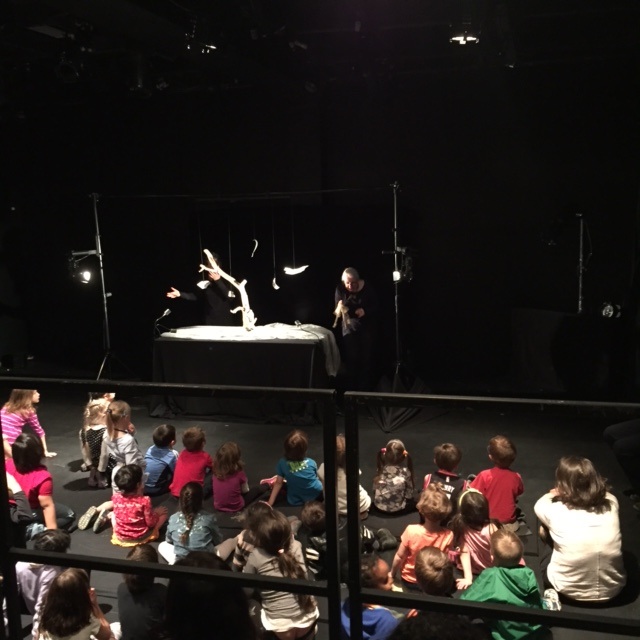Their Faces Reflect Your Expectation
Today I want to pull back and think a bit more broadly about the WeeFestival and about Theatre for Early Years. The Artistic Director of the festival, Lynda Hill, was kind enough to answer some questions for me a few days ago about where the festival came from and what it offers.
I asked her what the original idea for the festival was, back in 2014. Lynda said, “The idea behind this festival was really about exchange. About building a network of like-minded creator/producers. The festival is an extension of [Theatre Direct’s] mandate…a perfect way to build community around Theatre for Early Years.” She mentioned that it was essential to start to link to the scene in Quebec and Europe, where great work was being done.
“It was hard at first,” she said, “because these audiences were not seen as real audiences.” Which she believes really reflects a larger societal “lack of understanding of the true capacities of children to engage with art.”
There wasn’t a tradition, even in children’s theatre, to welcome babies or toddlers. Lynda said, “I think that was something that really needed to be challenged. As companies dedicated to young audiences, we need to have a very rich and broad notion of what a young audience is. How strange for us to say, ‘well, young only means four.’”
The WeeFestival arrived just in time, because there hadn’t been an international children’s festival in Toronto since the Harbourfront Milk Festival closed in 2006. “That didn’t make any sense for a city of our size and of our (supposed) progressive nature,” said Lynda. “Our city doesn’t have a festival dedicated to children. Doesn’t have a children’s museum like many major cities do. Doesn’t have a charter of children’s rights, not just in respect to art but in general. We want to make sure that these very young audiences are included in our idea of a city.”
Then I asked Lynda if she had seen any memorable expressions on the faces of children, while attending the first festival in 2014. She became very excited. “It’s just this gorgeous look,” she said, “when children are treated with respect, and when they’re spoken to as intelligent and complex beings, their faces shift to reflect your expectation of them.”
I loved this idea. The idea of a child’s face shifting to reflect your expectation of them. It is a look that I’ve seen already, many times throughout the festival. I saw it today, while watching Tree/Arbre & Inuksuk, from Le Chemin qui Marche in Québec. My favourite moment in the show came after a miniature journey through the tundra of two Inuit characters, portrayed by hand-puppets. The two characters made camp for the night, built up a fire, and fell asleep, snoring on each other. Slowly and quietly, a scrim behind the puppets came alive with blue and green light. The children (probably in kindergarten) gasped. Then one of them shouted “It’s the Northern Lights! IT’S THE NORTHERN LIGHTS!” His face was alive with joy, reflecting back the high expectations of the artists, after he was spoken to like an intelligent, complex creature.

Kids lean in for some discussion after Tree/Arbre & Inuksuk
